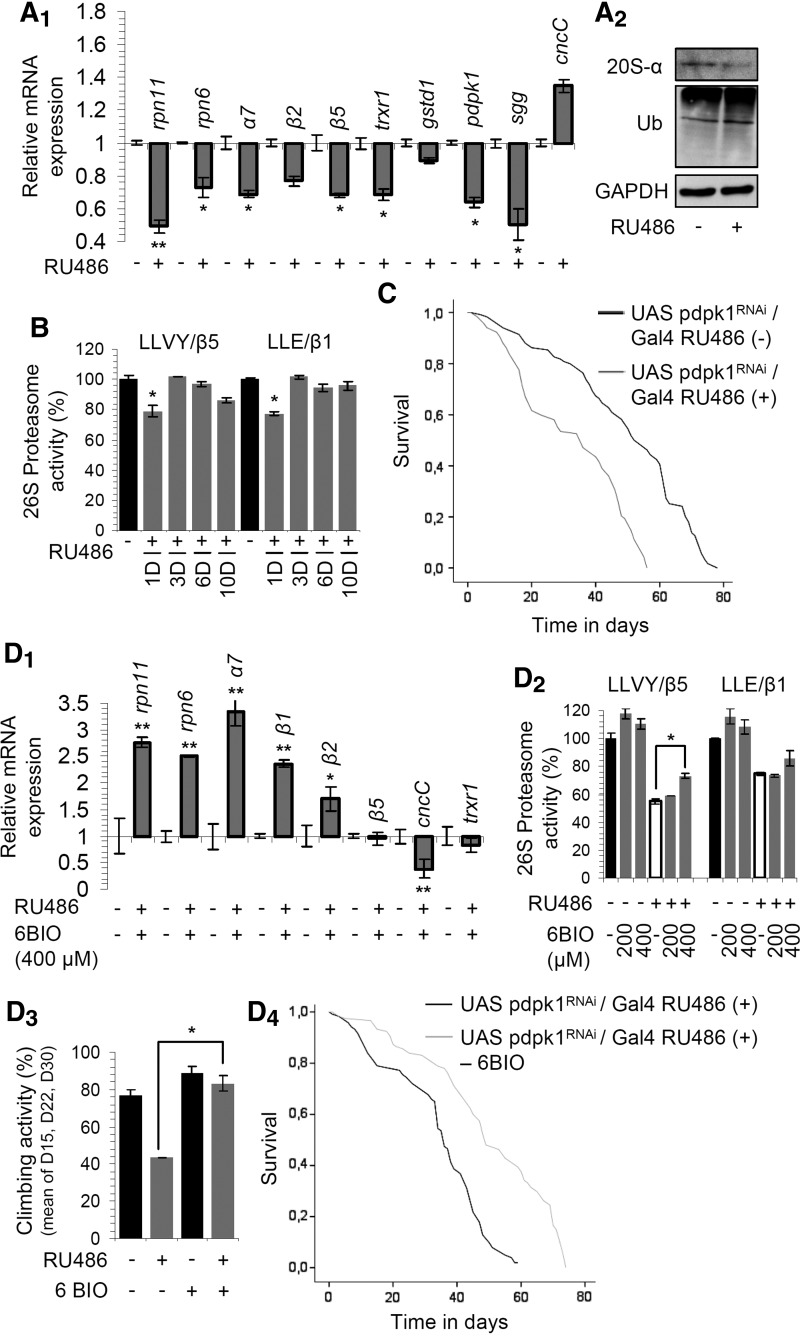FIG. 6.
Activation of endogenous Sgg/Gsk-3 in Drosophila somatic tissues decreased proteasome functionality and reduced longevity; these effects were largely rescued by 6BIO. Relative expression of rpn11, rpn6, α7, β2, β5, trxr1, gstd1, pdpk1, sgg/gsk-3, and cncC/nrf-2 genes (A1), and representative blots showing 20S-α proteasome subunit expression and total protein ubiquitination (A2) in young fly tissues after inducible RNAi-mediated Pdpk1 knockdown for 6 days. (B) Relative proteasome activities in young fly tissues following Pdpk1 RNAi for 1, 3, 6, and 10 (1D–10D) days. (C) Longevity curves after induced (or not) Pdpk1 RNAi. (D1, D2) Relative expression of the rpn11, rpn6, α7, β1, β2, β5, cncC/nrf-2, and trxr1 genes (D1) and relative (%) proteasome activities (D2) after Pdpk1 RNAi in flies treated (or not) for 6 days with the shown 6BIO doses. (D3) Mean climbing activity (%) of Pdpk1 RNAied middle-aged flies cultured (or not) in the presence of 400 μM 6BIO. (D4) Longevity curves after inducible Pdpk1 RNAi in flies treated (or not) with 400 μM 6BIO; statistical analyses of life span experiments (C, D4) are reported in Supplementary Table S1. GAPDH (A2) and rp49 gene expression (A1, D1) were used as reference. Control samples in (B, D2, D3) were set to 100%. Bars indicate ± SD (n ≥ 2); *p < 0.05; **p < 0.01. See Western blot in Supplementary Figure S14. Pdpk1, 3-phosphoinositide-dependent protein kinase-1.

